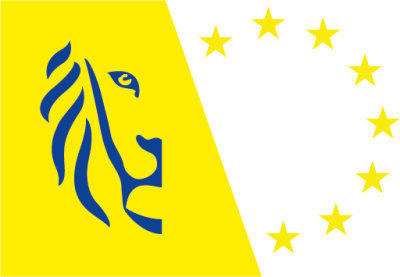|
09:15-09:45
|
Opening speech (on-site + streamed live)
|
- Flemish Minister for Media
- Roberto Viola, Director General (EU Commission)
|
|
09:45-11:00
|
AI and media, reshaping the future (on-site + streamed live)
Recent developments surrounding AI in content creation have caused serious concern in the media and audiovisual industry and creator communities, but AI also offers a lot of opportunities. Generative AI, in particular, is proving itself an interesting technology that the industry can adopt as a useful tool to enhance their production, workflow and distribution processes. The increasing adoption of generative AI will undoubtedly have a sizeable impact on the media and audiovisual sector. How will the media and audiovisual industry harness the power of AI to enhance creativity while mitigating potential risks and challenges?
|
- Yiannis Kompatsiaris (AI4Media)
- Guiseppe Abbamonte (EU Commission)
- Tom Rubin (Open AI)
- Valerie De Naeyer (DPG Media)
Moderator: Valérie Deridder
|
|
11:00-11:30
|
Break
|
|
|
11:30-12:30
|
Innovation to counter, detect and refute disinformation (on-site + streamed live)
New and emerging technologies, such as AI, will continue to impact the news media sector and the information landscape. Manipulated and altered forms of media, such as deepfakes, increasingly blur the boundaries between authentic and synthetic content, underlining the value of qualitative, trustworthy and transparent journalism. These new and emerging technologies can also assist the news media sector, factcheckers and civil society in detecting, debunking, countering and refuting disinformation. As such, AI and other technologies have the potential to play a pivotal role in tackling disinformation and increasing the impact of quality news media production.
|
- Anna Bulakh (Respeecher)
- Paulo Cesarini (EDMO)
- Jan Jagers (deCheckers)
- Carlos Echevarria (maldita.es)
Moderator: Ike Picone
|
|
14:00-15:15
|
Break-out sessions:
- European video game sector & media crossovers (on-site + streamed live)
Today, half of European citizens play video games. The European video games sector is growing strong and also finds itself at the crossroads of a technological revolution in the broader audiovisual and media sector. The development of video games and the use of game technologies requires highly specific skills and expertise, and challenges in recruiting and educating talent are seen as a constraint on growth. Furthermore, how do we support and retain the existing video game talent and how do we transfer their knowledge and expertise to the media and audiovisual sector? So, how can we develop the European video games sector into a thriving, competitive industry? And what is the potential of gaming for the audiovisual sector and vice versa?
- Reaching younger audiences (not available for online viewers)
The analysis of media consumption trends shows that younger generations have distinctive habits in consuming news and entertainment content. They are moving away from traditional and mainstream media, in favor of online or virtual spaces. In this context, media companies need to find ways to attract and retain a younger audience to ensure their long-term relevance. So far, some non-EU companies are successfully positioning themselves in sectors attracting youngsters. This raises the question of whether (and how) media organizations want or need to reach a younger audience on the non-European platforms (YouTube, Instagram, TikTok, Twitch,…) where they are already present today, or whether European media can draw them in on their own platforms and channels. Can they use technology in function of reaching younger people?
|
- Hester Woodliffe (WarnerBros. Videogames Europe)
- David Verbruggen (FLEGA, Videogames Europe)
- Timothy Vanherberghen (Triangle Factory)
- Lili Blumers (Arte)
- Hélène Juguet (Ubisoft Film & Television)
- Lucia Recalde (EU Commission)
Moderator: Per Strömbäck
- Kwebbelkop (JVDB Studios)
- Laurie MacGregor (NRK)
- Gregory Carette (RTBF)
- Daniela Alvarez (Ac2ality)
Moderator: Konrad Collao
|
|
15:15-15:45
|
Break
|
|
|
15:45-16:55
|
Unleashing creativity through tech (on-site + streamed live)
Cutting-edge technologies like AI, XR, game engines and interactive platforms are revolutionizing creative processes across media industries. The combination of virtual production engines and AI generative tools will have a significant impact on the overall content creation process. Join us for an inspiring discussion on how embracing these technological advancements can empower media and audiovisual professionals to tap into their full creative potential and can lead to new ways to engage with their audience.
|
- Jan Hameeuw (The Pack)
- Chris Umé (Metaphysic.ai)
- Eno Henze (Hyperbowl)
- Max Cleary (Create With AI)
Moderator: Valérie Deridder
|
| 16:55-17:00 |
Closing speech |
Minister for Media of the German-speaking community of Belgium |
Thursday March 14th
| 09:15-09:30 |
Opening speech |
Vice President of the Walloon Government and Minister of Media of the French Community |
|
09:30-10:30
|
Data-driven media industry (on-site + streamed live)
Big data has an important impact on media operations, as a sufficiently comprehensive retrieval and deep analysis of user data can enable the media sector to create more detailed predictive models and competitive opportunities. Data are a crucial resource in new distribution and business models. Due to their scale, large online players can collect and analyze great amounts of user data. This allows them to constantly optimize their business models, better monetize and personalize content and invest in new markets, creating an uneven power balance with local media players which mostly operate on a smaller scale. How can the European media industry be more data driven and better understand, attract and serve its audience? And how can data contribute to the discoverability and personalization of content?
|
- Véronique Demilly (France Télévisions)
- Bart Temmerman (Flemish Department of Culture, Youth and Media)
- Wouter Quartier (EBU)
-
Catalina Iordache (VUB)
Moderator: Valérie Deridder
|
|
10:30-11:00
|
Break
|
|
|
11:00-12:00
|
Break-out sessions:
- The role of media in a virtual world (on-site + streamed live)
Video games and video game technology host diverse virtual experiences and are one of the key gateways to virtual worlds. Extended Reality (XR) is also set to become mainstream in the coming years. In some of these virtual environments the lines between gaming, social platforms, music venues or fashion retailers are blurring. Social platforms are bound to consolidate their place on the market and influence future consumption trends. Companies are also adapting their own strategies in view of this changing reality. So, the question arises: What will be the role of media in these virtual and immersive worlds?
- Ethical boundaries of the mediatech revolution (not available for online viewers)
The analysis of media consumption trends shows that younger generations have distinctive habits in consuming news and entertainment content. They are moving away from traditional and mainstream media, in favor of online or virtual spaces. In this context, media companies need to find ways to attract and retain a younger audience to ensure their long-term relevance. So far, some non-EU companies are successfully positioning themselves in sectors attracting youngsters. This raises the question of whether (and how) media organizations want or need to reach a younger audience on the non-European platforms (YouTube, Instagram, TikTok, Twitch,…) where they are already present today, or whether European media can draw them in on their own platforms and channels. Can they use technology in function of reaching younger people?
|
- Tom Ffiske (Immersive Wire)
- Wesa Aapro (YLE)
- Laura Olin (younite.ai)
- Ania Helseth (Meta)
Moderator: Per Strömbäck
- Anthony Longo (UAntwerpen)
- Nika Nour (UCI PhD)
- Ben Zevenbergen (University of Oxford)
- Anssi Komulainen (Sitra)
Moderator: Allie Weiss
|
|
12:00-13:00
|
European broadcasters: staying relevant through technology and innovation (on-site + streamed live)
Increasing competition from global digital media platforms has disrupted traditional business models and have forced European broadcasters to adapt to new market conditions. In order to stay relevant in a global, competitive online-first market, the European audiovisual industry needs alliances and collaboration to compete with global platforms on scale, (local) qualitative content and distribution models. How can public and commercial broadcasters benefit by working together on digital platforms, technology, innovation and new forms of content?
|
- Karen Donders (VRT)
- Gabriella Vacca (Sky Italia)
- Bevan Gibson (EMG)
- Ezra Eeman (NPO)
Moderator:
Jonathan Van de Velde
|
|
14:00-14:45
|
Policy initiatives stimulating innovation and collaboration (on-site + streamed live)
This session talks about how policy initiatives can stimulate and support collaborations regarding innovation and digital transformation within the media industry. This session covers how policy makers can collaborate with the industry on a media innovation program and how to stimulate collaborations within the media ecosystem. We will take a closer look at recent and current European policy initiatives regarding media innovation and digital transformation projects and explore possible policies to tackle future needs and challenges of the broad media sector.
|
- Rafaël Huybrechts (Flemish Department of Culture, Youth and Media)
- Kristers Pļešakovs (Ministry of Culture of the Republic of Latvia)
- Diego Agundez (EU Commission)
Moderator: Sofie Hvitved
|
|
14:45-15:30
|
Closing debate: future needs regarding upcoming European policy agenda (on-site + streamed live)
An independent expert will bundle and summarize the main takeaways from all previous sessions in an inspiring keynote. Followed by a panel discussion with a European media policy voice, the Flemish minister of Media and a captain of industry from the media sector, in order to define future needs regarding EU media policy and the next multiannual financial framework. The Flemish minister of Media will close the conference, in his role as chairman of the Education, Youth, Culture and Sport Council configuration (EYCS).
|
- Sofie Hvitved (Copenhagen Institute for Futures Studies)
- Frederieke Leeflang (NPO)
- Flemish Minister of Media
- Renate Nikolay (EU Commission)
|
|




